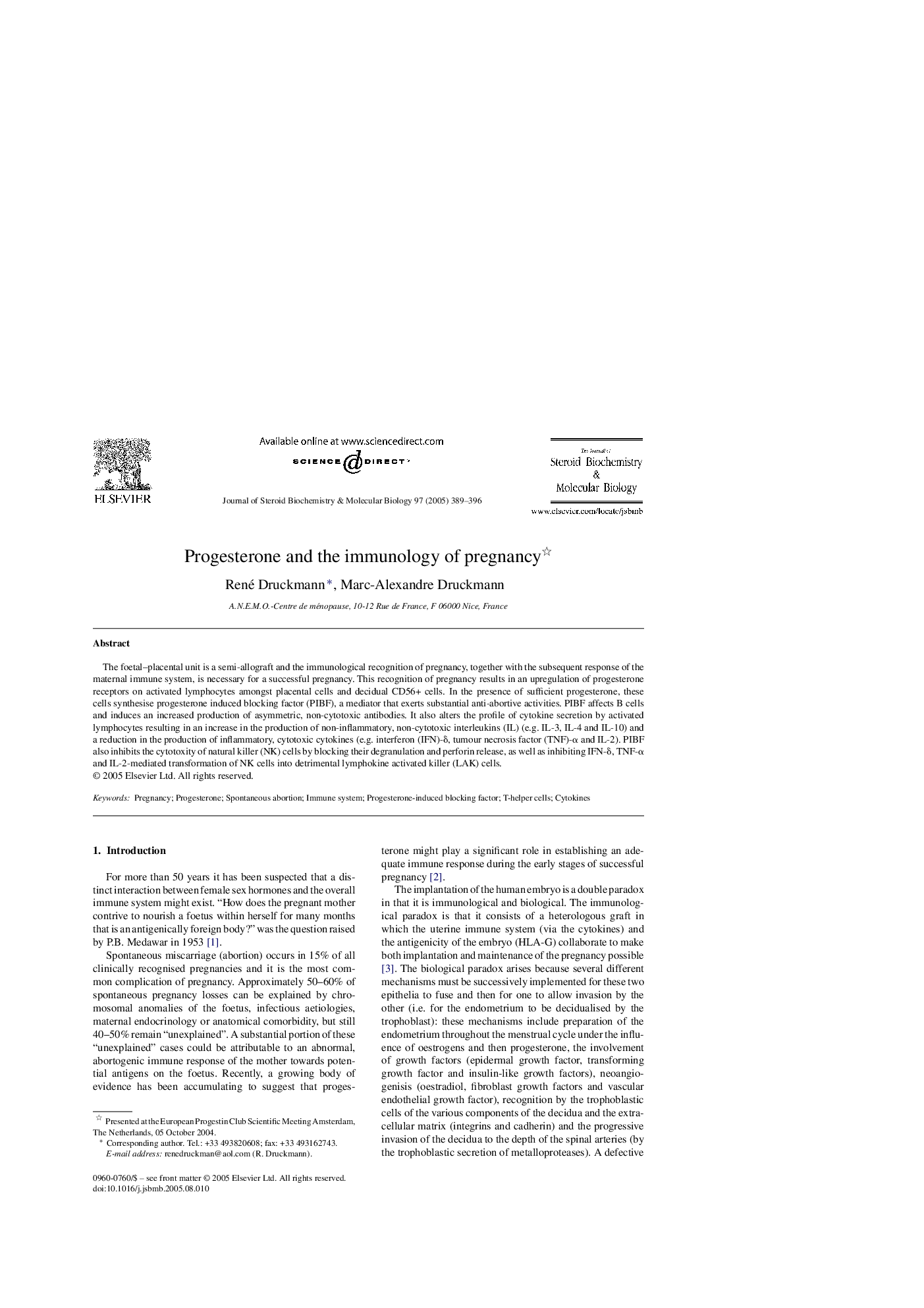| Article ID | Journal | Published Year | Pages | File Type |
|---|---|---|---|---|
| 9892005 | The Journal of Steroid Biochemistry and Molecular Biology | 2005 | 8 Pages |
Abstract
The foetal-placental unit is a semi-allograft and the immunological recognition of pregnancy, together with the subsequent response of the maternal immune system, is necessary for a successful pregnancy. This recognition of pregnancy results in an upregulation of progesterone receptors on activated lymphocytes amongst placental cells and decidual CD56+ cells. In the presence of sufficient progesterone, these cells synthesise progesterone induced blocking factor (PIBF), a mediator that exerts substantial anti-abortive activities. PIBF affects B cells and induces an increased production of asymmetric, non-cytotoxic antibodies. It also alters the profile of cytokine secretion by activated lymphocytes resulting in an increase in the production of non-inflammatory, non-cytotoxic interleukins (IL) (e.g. IL-3, IL-4 and IL-10) and a reduction in the production of inflammatory, cytotoxic cytokines (e.g. interferon (IFN)-δ, tumour necrosis factor (TNF)-α and IL-2). PIBF also inhibits the cytotoxity of natural killer (NK) cells by blocking their degranulation and perforin release, as well as inhibiting IFN-δ, TNF-α and IL-2-mediated transformation of NK cells into detrimental lymphokine activated killer (LAK) cells.
Keywords
Related Topics
Life Sciences
Biochemistry, Genetics and Molecular Biology
Biochemistry
Authors
René Druckmann, Marc-Alexandre Druckmann,
